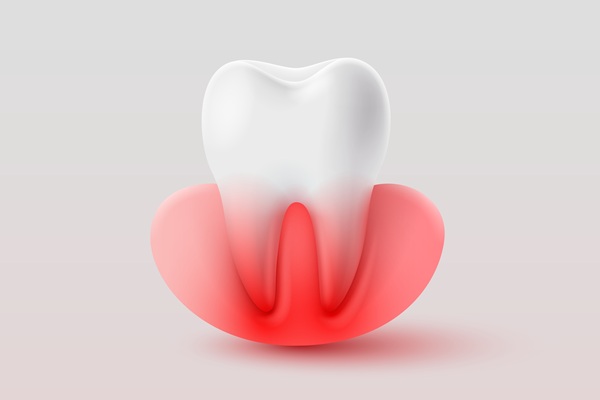The Danger of Untreated Gum Disease

Gum disease is a serious oral health condition that can lead to severe health issues when left untreated. This condition, also known as periodontal disease, affects the gums and supporting structures of the teeth. Without the appropriate treatment, gum disease can lead to tooth loss, oral infections, and an increased risk of systemic health issues.
The progression of gum disease
The earliest stage of gum disease begins with gingivitis. This condition occurs when there is plaque buildup along the patient's gumline, causing inflammation, redness, and bleeding. Gingivitis is reversible with good oral hygiene practices and regular dental cleanings. However, if left untreated, it can progress to periodontitis, a more severe form of gum disease.
Periodontitis leads to the destruction of gum tissue and the underlying bone structure that supports the teeth. As the condition worsens, pockets form between the teeth and gums, allowing bacteria to accumulate and spread to other parts of the mouth. Over time, this can result in loose teeth and eventual tooth loss. Once gum disease reaches an advanced stage, the patient needs professional intervention to prevent further deterioration.
Signs and symptoms of gum disease
Recognizing the early signs of gingivitis and gum disease is essential for patients to get the treatment they need as soon as possible. Common symptoms include:
- Red, swollen, or bleeding gums
- Persistent bad breath (halitosis)
- Gum recession or teeth appearing longer
- Loose or shifting teeth
- Pain or discomfort when chewing
Ignoring these symptoms can worsen the underlying cause of the gum disease and make it harder to treat. As the condition progresses, it may lead to serious health issues and require more complex treatments, increasing the cost of care and affecting the patient's recovery.
The link between gum disease and systemic health complications
Untreated gum disease is a concern for oral health and a risk factor for several systemic health conditions. Research has shown a strong connection between gum disease and cardiovascular disease. According to a 2021 article by Harvard Health, people with gum disease have two to three times the risk of having a heart attack, stroke, or other serious cardiovascular event. While there is no known direct connection, researchers believe that the bacteria associated with periodontal infections can enter the bloodstream, contributing to inflammation and increasing the risk of heart disease and stroke.
Diabetes is another condition linked to gum disease. Individuals with diabetes are more susceptible to infections, including periodontal disease. Severe gum disease can make it harder to control blood sugar levels. This creates a harmful cycle that worsens both gum disease and blood sugar issues.
Additionally, bacteria from the mouth can be inhaled into the lungs, potentially leading to pneumonia and other respiratory complications. Pregnant individuals with untreated gum disease may also face an increased risk of premature birth and low birth weight.
Protect your health against gum disease
Untreated gum disease can affect more than your smile. Without the appropriate treatment, it can lead to serious systemic health complications. Recognizing the early signs of gum disease can help prevent irreversible damage. Protect your health against gum disease and schedule an appointment at our Orange Park office today.
Request an appointment here: https://orangepark.centerfordentalexcellencefl.com or call Orange Park Center For Dental Excellence at (904) 639-5852 for an appointment in our Orange Park office.
Check out what others are saying about our dental services on Yelp: Gum Disease in Orange Park, FL.
Related Posts
Looking for a general dentist who offers laser dentistry services? This advanced dental treatment option is growing in popularity every day, as it offers various benefits that are not available using other treatment options. For example, according to the American Dental Association, lasers are used to reshape gums and remove bacteria during root canal procedures.A…
A smile makeover can transform not only the appearance of teeth, but also the way a person feels in social and professional settings. When the color, shape, or alignment of teeth causes hesitation, a smile makeover offers a structured way to address those concerns. Modern cosmetic dentistry combines art and science to create natural-looking improvements…
The All-on-6® implant restoration is designed to replace an entire arch of teeth after someone experiences significant tooth loss. The process uses six implants placed strategically so that a bone graft is not necessary. They are suitable for those who have inadequate bone density or mass. This option is preferred by many over regular dentures…
Implant-supported dentures deliver stable chewing, confident speech, and a natural appearance for patients who struggle with loose plates or frequent sore spots. This approach anchors a full arch to dental implants, creating a secure foundation that resists slipping during meals and conversations. With careful planning, the treatment protects bone health, restores balanced bite forces, and…






